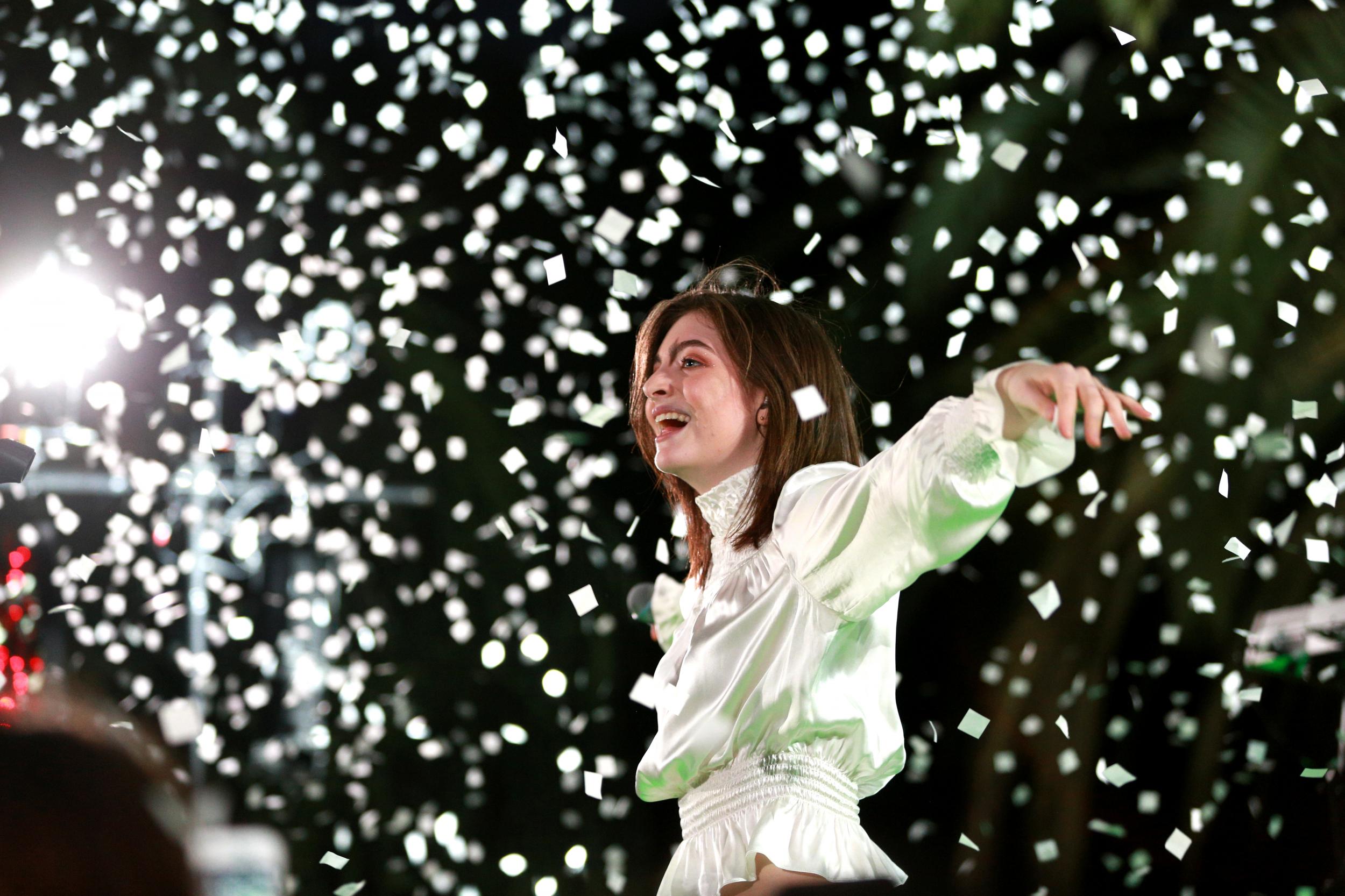Lorde’s Melodrama giddily captures the second adolescence of being queer
The New Zealand artist’s debut album ‘Pure Heroine’ pulled its emotional punches in favour of analytical – even anthropological – observations, writes Alexandra Pollard. Four years later, in the wake of a painful break-up, she lost her cool


Lorde first emerged full of ennui and eye rolls. Her debut album, the wryly titled Pure Heroine, fused stainless steel electropop with teenage detachment. “Don’t you think that it’s boring how people talk?” she drawled on “Tennis Court”. “I’m kind of over being told to throw my hands up in the air,” she shrugged on “Team”. The artist born Ella Yelich-O’Connor, at that point 16 years old, even abstained from alcohol so that she could better observe her peers. It was an excellent record, but it pulled its emotional punches in favour of analytical – even anthropological – observations. Four years later, in the wake of a painful break-up, she lost her cool. “It was quite liberating to be like, ‘You know what? I do care – a lot’,” she told The Spinoff when Melodrama came out in 2017. “So much, it feels like it’s breaking my back.”
This is a record about heartbreak, one that radiates warmth and passion and hangs on the conviction that nobody has ever felt so out of control: graceless, ashamed, wild, fluorescent, on fire. And because most of us have, we greedily grab onto it. It has held my hand through the prickly heat of heartbreak and the second adolescence I experienced after coming out.
Lorde started writing Melodrama – alongside Bleachers’ Jack Antonoff, the Max Martin of Gen Z – in a “fog of grief” after the end of her relationship with the photographer James Lowe. For the first minute of opening track “Green Light”, she masks that grief behind bitterness – “She thinks you love the beach, you’re such a damn liar,” she snarls, that final word hanging in the air in whispered echoes. Then the mask slips. She succumbs to the impatient, fruitless desire to get over someone more quickly than her body will allow. “’Cause honey I’ll come get my things, but I can’t let go,” she sings over a beat that is at once devastating and euphoric. “I’m waiting for it, that green light, I want it.”
Like the rest of the album, “Green Light” meddles with the laws of pop. Though it’s not quite true that Max Martin called it “incorrect songwriting” – a piece in The New York Times claimed as much, but he was actually talking about her first hit single “Royals” – there is certainly something slippery about it, a relay race of disconnected melodies. But if Melodrama’s melodic maths is wrong, then it still manages to be greater than the sum of its parts. “I love pop music in this deep, forever way,” she explained to The Spinoff’s podcast, “but it’s The Truman Show, and I’ve got in the boat, and I’ve pushed the boat out, and I’ve hit the sky, and I’m like… ‘What else?’”
The answer is Springsteen guitar riffs that seep into underwater drum pad beats (“The Louvre”); muffled electronic disco splurges (“Supercut”); a sample from an obscure Paul Simon documentary that ties a strange half-song onto the end of another (“Hard Feelings/Loveless”); a “ridiculous, dramatic” tiger’s roar (“Sober”); Laurie Anderson-esque vocoder chants (“Liability (Reprise)”).
Lyrically, Melodrama goes straight for the solar plexus. “Hard Feelings” in particular still takes the air out of my lungs. “I light all the candles, cut flowers for all my rooms,” Lorde sings, “I care for myself the way I used to care about you.” But then, for just a moment, she comes unspooled again. “But I still remember everything/ How we’d drift buying groceries, how you’d dance for me.” Getting over someone is never a straight line.
It’s often said that queer people go through a second adolescence. When our teenage peers are in the flurry of first love, many of us are in our own flurry of confusion, shame and worry. At school, I made my feelings smaller, my crushes inconspicuous; love and sex felt like secret languages I didn’t yet speak. It was the same at university. Then, somewhere in my early twenties, I realised I was simply standing in my own way. After that, coming out was easier than I’d ever imagined. But when you embark on a relationship in that context, it is with both the manic fervour of adolescence, and the weighty expectations of adulthood. Reciprocated love feels like such a rare and sacred thing – something that had previously seemed an impossibility – that when it ends, it’s hard to imagine you’ll ever find it again.
Maybe that’s why I relate so much to Melodrama, as Lorde takes those first clumsy steps out of both heartbreak and teenagehood, and makes no effort to suppress her feelings as she goes. “A drama queen went out and wrote a record,” she said. “I can turn this s****y feeling into something that shines.” I’m very grateful that she did.
Join our commenting forum
Join thought-provoking conversations, follow other Independent readers and see their replies
Comments
Bookmark popover
Removed from bookmarks